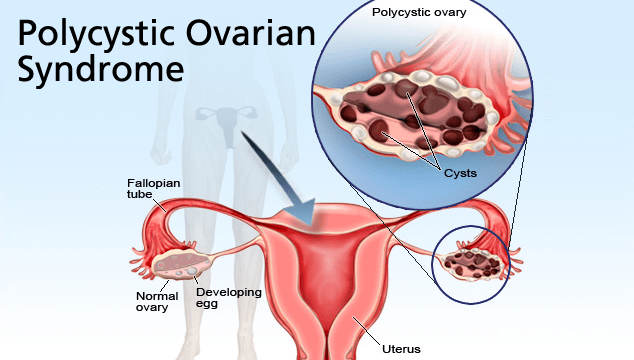- 5457 Twin Knolls Rd. Suite #300
Columbia, MD 21045 - Call Us
443. 979.7550 - Open Hours
Monday - Friday: 7:00AM - 6:00PM (by appointment)

Polycystic Ovarian Syndrome (PCOS) is a collection of symptoms. The three most common symptoms are long-term absent or irregular periods (including multiple periods in one month), elevated androgen levels (androgens, such as testosterone, are sometimes called “male hormones,” though women have them, too), and cysts on the ovaries, appearing on an ultrasound. While these are the “classic” symptoms, this is confusing because there really is no classic diagnosis of PCOS.
Typically, women aren’t diagnosed until one of these symptoms begins to affect their daily quality of life to such a degree that they wind up in a doctor’s office. The variability of the three hallmark signs make PCOS tricky to recognize, even for a medical professional. Similarly, acne and facial hair (common signs of elevated androgens) can be caused by other things (from other medical causes to ancestry). Finally, the cysts for which this syndrome is named only occur in an estimated 15% of women with PCOS.
PCOS is not something that you’re going to cause within yourself. It’s not an infectious disease. just because you have PCOS, that doesn’t mean you’re going to pass it to your children. However, daughters of women with PCOS are at a higher risk of developing a PCOS diagnosis.
So, the first thing to do after a PCOS diagnosis? Remain calm. There were probably some frustrating symptoms that led you to your diagnosis, such as irregular periods maybe, so focus on working with your integrative healthcare team not only to get a handle on the troublesome symptoms, but also to address the underlying cause of those symptoms. This diagnosis doesn’t mean you’re destined for a life of suffering, nor does it mean fertility challenges are in your future.
